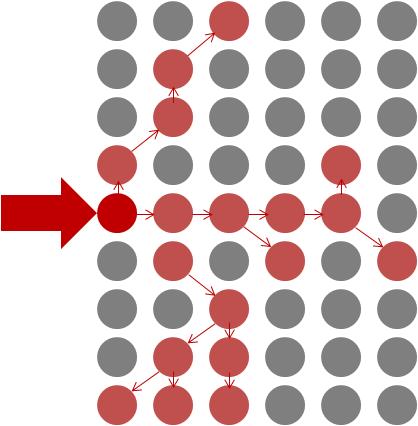The “Death of Marketing” Has Been Announced Prematurely
Aug 23, 2010 Industry News, Marketing And Advertising Analytics, Social Media, Web Analytics
Has there been a fundamental change in how people think about and buy goods and services? Is old-school marketing dead?
According to the recently-minted orthodoxy of social media, marketing is being transformed, and we are moving from the Age of Push to the Era of the Conversation. The Don Drapers of the world, they say, will now have to play the new way, find new jobs or become hobos. Participation in a conversation is voluntary, per the new theory, meaning marketers can’t unilaterally control conversations and so now must learn to communicate differently with the people in the marketplace.
WHAT HASN’T CHANGED
Marketing Has Always Been A Conversation – Marketers Just Haven’t Recognized It Until Now
There is an important truth here – much of the conversation about brands and products is intra-customer, and doesn’t involve the marketer at all. This has always been the case, but it just has not been as observable until it started happening online.
Audiences Have Always Been Able to Walk Away
Audiences have always asserted more control over the “conversation” than marketing models have admitted. People have been fast-forwarding and channel-surfing through television ads since they figured out which remote control buttons to use. Since the very birth of mass media, admen and their clients have been solving and re-solving the problem of how to entice an audience to listen to their stories instead of wandering off to grab something from the refrigerator.
Propaganda Still Works
Working against this is has always been the fact that (as psychological experiments have shown) repeated messages have an influence on peoples’ perceptions and behavior even if they are skeptical or not paying full attention, and even if they are aware they are being ‘sold’.
WHAT HAS CHANGED
The Emergence of Social Media
Thanks to social media lowering the bar for what constitutes a relationship, people are regularly engaging in communication with a wider circle of casual or low-involvement contacts.
Conversations are Observable and Trackable
We can find out what people are saying about brands and our products (at least when they happen in online social media). These conversations can assert a great deal of influence on buying behavior.
Advertisers and Marketers can Participate in the Conversation
Marketers can, when they decide it is to their advantage, participate in these conversations and assert some influence on the the agenda and the messages
Advertisers and Marketers can START the Conversation
Marketers can initiate conversations, and they can provide the platform or venue for these conversations to take place. However, the the attempt can backfire. Conversations can and will change locations if a community gets the sense that there is excessive censoring or propagandizing.
SO?
So, things have changed, but not that much. People still need to buy things, they still need to decide what to buy and where to buy it. It’s just that now, people increasingly use social media (among other channels) to get information about products and services they are considering. Social networks have always been influential, but now they are pervasive, instantaneous, and measureable. So you shouldn’t ignore social media, you should listen to and participate in it. That’s all.
Tags: Death of Marketing, Don Draper, Facebook, hobo, LinkedIn, listening, Listening programs, marketing, Marketing as Conversation, Social Media, Twitter
Facebook Dominates Social Media Searches (Yet More Fun With Google Trends)
Jan 4, 2010 Industry News, Web Analytics
Playing with tools is fun – I did another Google Trends search, this time comparing “Facebook” to “MySpace”, “YouTube” and “LinkedIn” as reference points. Wow – searches for “Facebook” have really grown amazingly fast (see the first chart, below). I wish I had bought a piece of that company 2-3 years ago.
It occurred to me that there should be a corresponding trend in searches for “social networking”, relative to other online marketing activities (e.g., email, search, display advertising). Searches for “social networking” have had a huge growth rate, but the absolute volume turns out to be really small compared to “email” and “search”. I guess there is still time to get on that bandwagon. The search volume for “Facebook” crushes that for those terms, but this is made harder to interpret by the fact that these are much more likely to be searches by users, not just marketing professionals.
Tags: Bill Seely, Facebook, Google Trends, Graph, Keyword Search Frequency, Practical Marketing Analytics, Social Media
